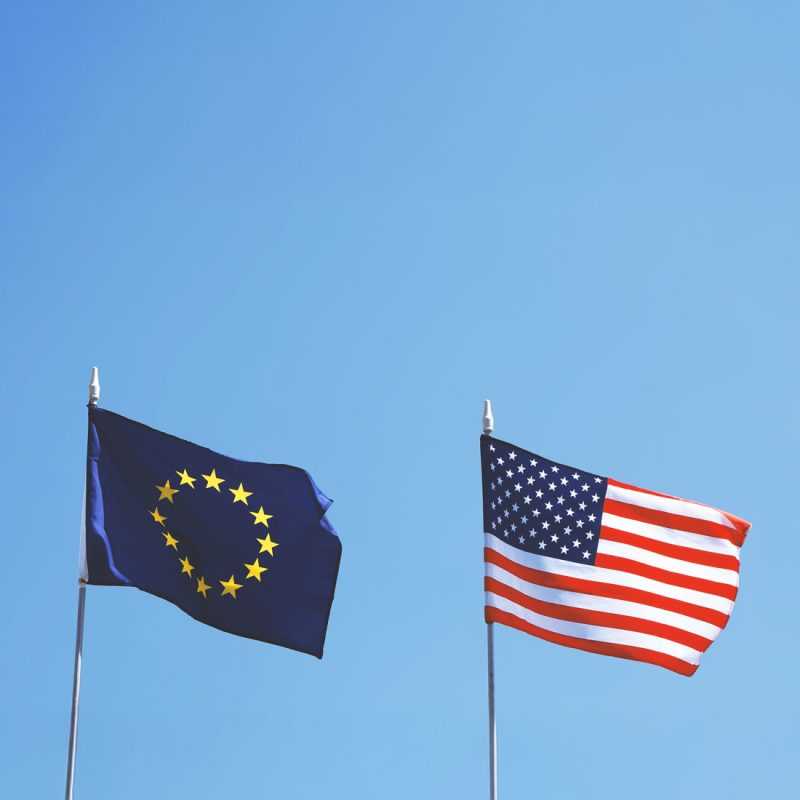
Trump’s Return: A Second Wake-Up Call for European Strategic Autonomy?
November 22, 2024
U.S. President-elect Donald Trump’s return to the White House could signal a pivotal moment for Europe, depending on how the EU decides to approach it. The second Trump Administration is expected to be difficult in various areas, including trade, technology, climate, defense, China and Ukraine. For a continent suffering from a vacuum of leadership and a lagging economy, a Trumpian approach in Washington may be a critical blow to Europe’s place in the global economy.
Acceptance of the United States as a strategic competitor, rather than a partner, may be just what the EU needs to get to its next level of “strategic autonomy.” While a valid reason for EU Member States to be concerned, the second Trump Administration’s policy approach is just one of many challenges they are jointly facing in today’s world—alongside authoritarian regimes, aggressive foreign investments, waves of far-right movements and weakened European leaders.
Acknowledging these threats is a start; overcoming them requires new thinking about how the EU can tackle them without losing its global positioning. This gives businesses and industries the opportunity to shift Europe’s economic narrative around policy and legislative frameworks that promote Europe’s competitiveness rather than stifle it.
Trump’s assumption that the EU is taking the United States for the world’s “biggest suckers” is nothing new. Rather, it is rooted in years of growing frustrations between these two partners when it comes to trade and foreign policy. The EU has shared its frustrations as well, notably criticism of the Biden Administration’s 2022 Inflation Reduction Act, due to its “Buy American” provisions, and Obama’s own “pivot to Asia” before the end of his term.
While the EU cannot control Trump’s movements, it can prepare itself to act more competitively against them. Former Italian Prime Minister and European Central Bank President Mario Draghi provided the blueprint for competitiveness with his report on an industrial strategy for Europe, suggesting to act not as protectionists, but in the interest of preserving Europe’s prosperity. This could include, for instance, simplification or reduction of EU rules to minimise the regulatory burden on growing industries or to avoid excessive deindustrialization of the economies in Europe.
The Draghi report also calls for reform of how competition law is applied in the EU, encouraging a more dynamic, forward-looking approach that stimulates innovation. Commission President Ursula von der Leyen took a similar stance in her recent Political Guidelines, suggesting to “give adequate weight to the European economy’s more acute needs in respect of resilience, efficiency and innovation.” This is particularly important for Europe’s technological industries that directly need start up and innovation investment to compete with the larger, dominating tech players coming from the United States.
Reform also doesn’t have to come at the cost of the European Green Deal’s targets, though some readjustment may be warranted once Trump rolls back U.S. climate action. This includes review of the EU ban on internal combustion engine going into force in 2035, or of environmental, social and governance (ESG) regulations such as the Corporate Sustainability Reporting Directive (requiring disclosure of social and environmental risks) and the Corporate Sustainability Due Diligence Directive (regulating sustainable and responsible behaviour in company operations).
Trump’s plans to make the U.S. market a more attractive place for investments could also stimulate new thinking about how Europe’s capital is managed and deployed—potentially resurrecting the EU’s Capital Markets Union plan first introduced in 2015, but which has since diminished in ambition following the EU exit of its largest advocate, the UK.
The number of European companies already turning to the United States for funding rounds and launching initial public offerings (IPOs) could however increase following Trump’s election. Trump’s intention to poach foreign energy-intensive industries through more competitive pricing could divert investment from Europe’s automobile and chemical sectors, while European crypto trading is feared to shift to the United States due to its anticipated pro-crypto administration compared to new compliance requirements under the EU’s Markets in Crypto-Assets Regulation.
Conversely, Trump’s threats to withdraw support for Ukraine and NATO are driving attention to investment and spending in Europe’s own defence systems. This could benefit, for instance, industries covering strategic capabilities such as satellites, surveillance technologies, security equipment and artificial intelligence.
A breakdown of leadership in Germany and France, coupled with far-right challenges across Europe, may not be the ideal setup for a newly competitive Europe. But history has shown that the bloc is its best when faced with existential challenges—from George W. Bush’s “old Europe” and Brexit to Trump’s first rise to power in 2016.
What the EU may be learning is that a more strategic approach to these threats can secure its autonomy without losing out on competitiveness. It may not be the first to beat Silicon Valley, but it can be the first to regulate it. A carbon border adjustment mechanism may challenge European exports but can be adapted as necessary (with legislative proposals already anticipated in 2026).
What businesses can do is offer solutions, not gripes, to catch the eye of a new EU institutional order in a globally complex world. This can mean serving as a bridge for transatlantic interests, a resource to enhance the EU’s decision-making capacity or a partner for identifying the nexus between business and policymaking.
The Trump victory may be a second wake-up call for Europe to act. Finding unity between the EU Member States in how to manage that in the interest of its economy will be the next challenge.